"I said, what are you talking about? Just step over Keith Richards?!" The cult of Keef: guitar hero, blues scholar, rebel, survivor, self-parody, genius
How Keith Richards influenced several generations of rock’n’rollers – for better or worse
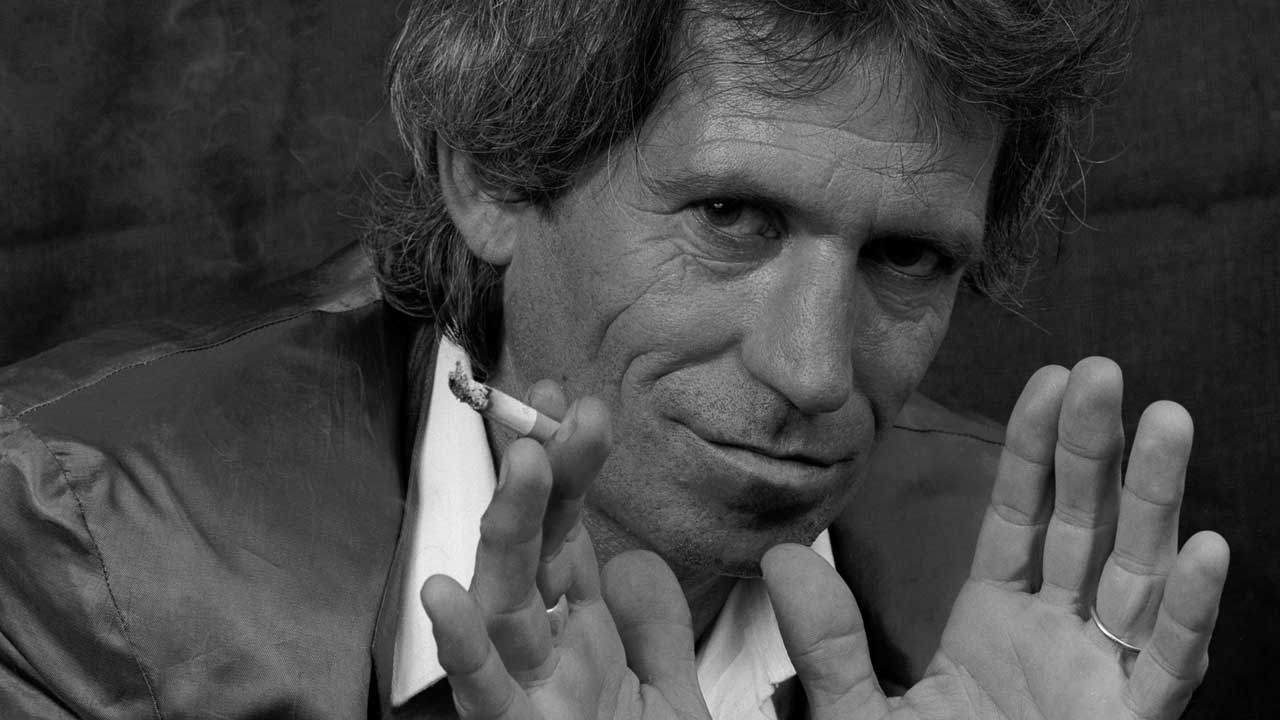
Select the newsletters you’d like to receive. Then, add your email to sign up.
You are now subscribed
Your newsletter sign-up was successful
Want to add more newsletters?

Every Friday
Louder
Louder’s weekly newsletter is jam-packed with the team’s personal highlights from the last seven days, including features, breaking news, reviews and tons of juicy exclusives from the world of alternative music.

Every Friday
Classic Rock
The Classic Rock newsletter is an essential read for the discerning rock fan. Every week we bring you the news, reviews and the very best features and interviews from our extensive archive. Written by rock fans for rock fans.

Every Friday
Metal Hammer
For the last four decades Metal Hammer has been the world’s greatest metal magazine. Created by metalheads for metalheads, ‘Hammer takes you behind the scenes, closer to the action, and nearer to the bands that you love the most.

Every Friday
Prog
The Prog newsletter brings you the very best of Prog Magazine and our website, every Friday. We'll deliver you the very latest news from the Prog universe, informative features and archive material from Prog’s impressive vault.
Marianne Faithfull once said of Keith Richards: “If you’re a middle-class girl and you’ve read your Byron, that’s Keith. He was an injured, tortured, damned youth; dirty, awful, arrogant.”
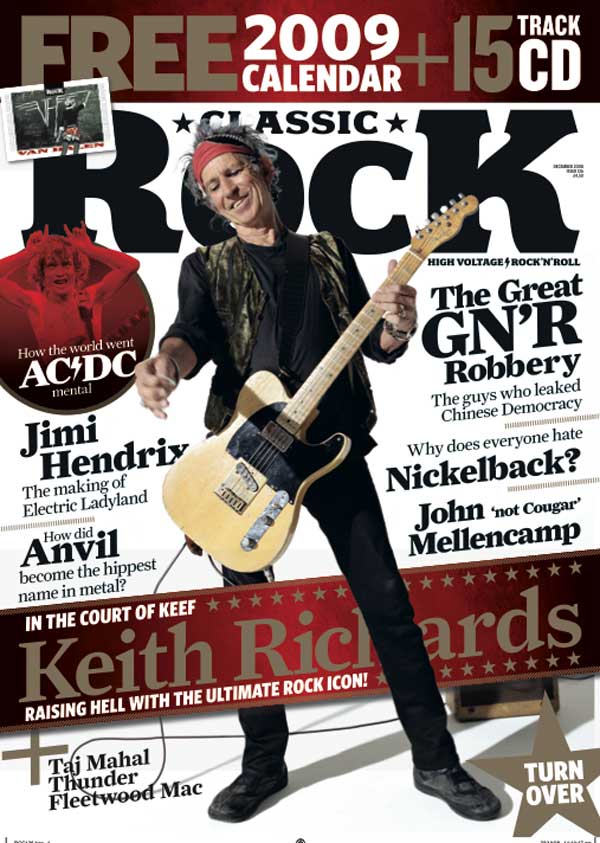
Keith Richards has always been different. Rock’n’roll incarnate, he exists on many levels: guitar hero, songwriter, Glimmer Twin, blues scholar, drug addict, rebel, survivor, self-parody, piratical dandy. He represents the indestructible heart of rock itself, enduring despite a lifetime of hard living, dangerous appetites and the odd tumble from a coconut tree.
“The world’s most elegantly wasted human being” (to quote rock critic Nick Kent) stands apart as a guitarist, too. A touchstone for pop kids, punks, rockers, bluesmen and hairy metal spankers, Richards’ everyman quality is unique. In that respect, he’s the ultimate Guitar God.
Hendrix was astounding, but his playing was in another dimension rather than serving the song; Page in his Zep pomp was too aloof; Clapton was too conservative, forever hinting at the suited hedge-fund appeaser he is now; Duane Allman, even had he lived, was too grounded in southern rock. Nobody had Richards’s crossover appeal.
“Keith Richards is the shit,” said Slash. “If the Stones were the greatest narcissistic, chemically influenced rhythm and blues band ever, then Keith was their out-and-out party animal. He’s utterly immersed in the notion of being a musician… Keith is so much more than some junkie rock’n’roll cliché. He’s intellectual, he’s aware of what he’s up to.”
“They call Keith the Human Riff, but it’s the song that always comes first,” agrees former Quireboys guitarist Guy Griffin. “Unlike a lot of other guitar heroes, he’s not thinking about what he’s going to do on the guitar solo. Keith has had a very direct influence on the way I play. I’ve always gravitated to guitarists like Keith or [AC/DC’s] Malcolm Young, because they’re the engine room of the whole band, they’re holding down the riffs.”
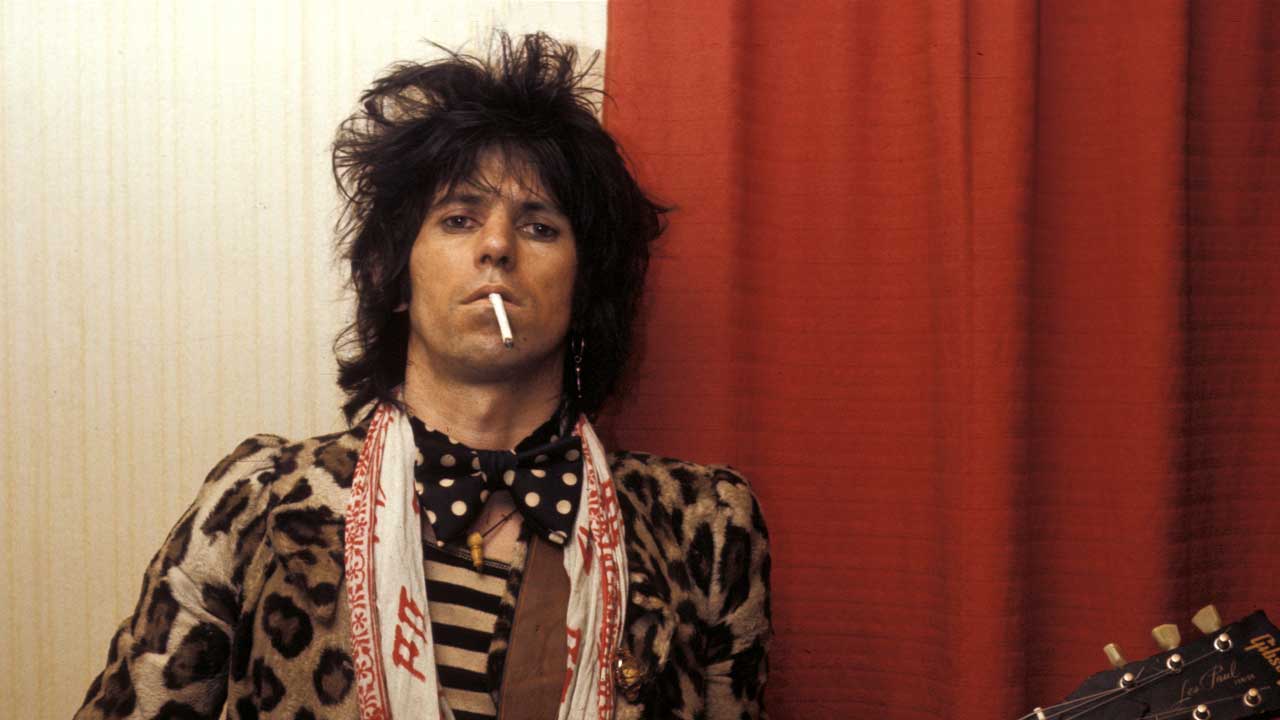
Television guitarist Richard Lloyd, who got to know Richards well in the late 70s, is equally in awe. “Keith’s like a bloodhound,” he says today. “He can play the same riff for months. Every time he plays it, it’s as thin as a piece of paper. Then after he’s played it a zillion times it becomes like a thick book. It seems to get imbued with this magical power. It’s unbelievable.”
Sign up below to get the latest from Classic Rock, plus exclusive special offers, direct to your inbox!
Even Ted Nugent told High Times in 1977: “[He’s] the ultimate enigma. More than the fact that he’s ripped out of his brain and still chuggin’ along with great chops, is that he’s ripped out of his brain and I dig him. I think he’s an asshole, but I think he’s the epitome of the rock’n’roll guitar player.”
Guns N’ Roses, Aerosmith, the New York Dolls, Black Crowes, Primal Scream, The Stooges… it’s unlikely that any of these would have existed without the Stones.
“Being from the south gave me a natural affinity for Stones music,” says Georgia Satellites guitarist Rick Richards. “They’re the architects of what our sound was built upon. I was immediately hooked on the rhythmic quality of Keith’s almost reckless abandon – pure rock’n’roll – with the six-string. I knew this cat had something I needed to get a firm grip on.”
Aerosmith’s Steven Tyler fell for the band wholesale. “I love the fucking Rolling Stones,” he once gushed. “Mick and Keith were the baddest boys on the block. Theirs was the hole I crawled out of.”
That comment throws up another aspect of Richards’s allure: his lifestyle. Many have aped his rock’n’roll hedonism, often stopping short of the abyss into which Keith has periodically found himself teetering, though some of his drug buddies haven’t been as lucky.

One was Gram Parsons, the country pioneer who befriended the Stones in the late 60s and whose waywardness supposedly led to his expulsion from the villa in France where the Stones were recording Exile On Main St in 1971. Parsons eventually died a drug-related death in September 1973.
Infamous road manager Phil Kaufman, a close friend of both men, once said: “It’s my theory that Gram thought he shared a common metabolism with Keith Richards. Gram thought he could always keep up. But Keith could eat iron and piss rust. Cursed or blessed, that’s the way his body worked. Gram thought he had a similar digestive system, but he was dead wrong.”
Richard Lloyd witnessed Keith’s habits first-hand when at his house in Connecticut in 1977: “He’s awake for days on end. One day, I walked out of the kitchen and saw Keith laid on the floor, between a potted plant and a couch. I looked around and one of the hangers-on said: ‘Just step over him’. I said: ‘What are you talking about? Just step over Keith Richards?!’ And the guy said: ‘Oh, this is just what happens. He’s up for days then, like a light switch, he just goes out. Y’know, we just walk around him. Then he wakes up and it’s another five days of fun.’
“Everyone declared Keith was the guy that was gonna die. Ha! People make this giant mistake about him: they see this man who’s become a cultural icon, having written hundreds of brilliant songs, who has millions of dollars, looks great and does drugs. So people dress like him and do drugs. Then they think they’re going to write the songs and get famous. But that’s completely ass-backwards. Keith learnt to play, then wrote the songs. Then he took drugs to keep doing it. Everyone tries to run with Keith, but you can’t.”
Richards himself swore it was the quality of the heroin that saved him (“it’s the shit they cut it with that’ll kill ya”). But for others, his habit was just a symptom of a wider remit. Some years back, former Smiths guitarist Johnny Marr observed: “I think Keith’s ideology was what really led the Stones. His philosophy was about purity. The drugs, until later, were just part of an almost noble search for no-bullshit rock’n’roll honesty. Keith won’t be told how to live his life… he’s a true hero in the same way Muhammad Ali was, standing up for his principles and not being beaten down by uniformed authority.”
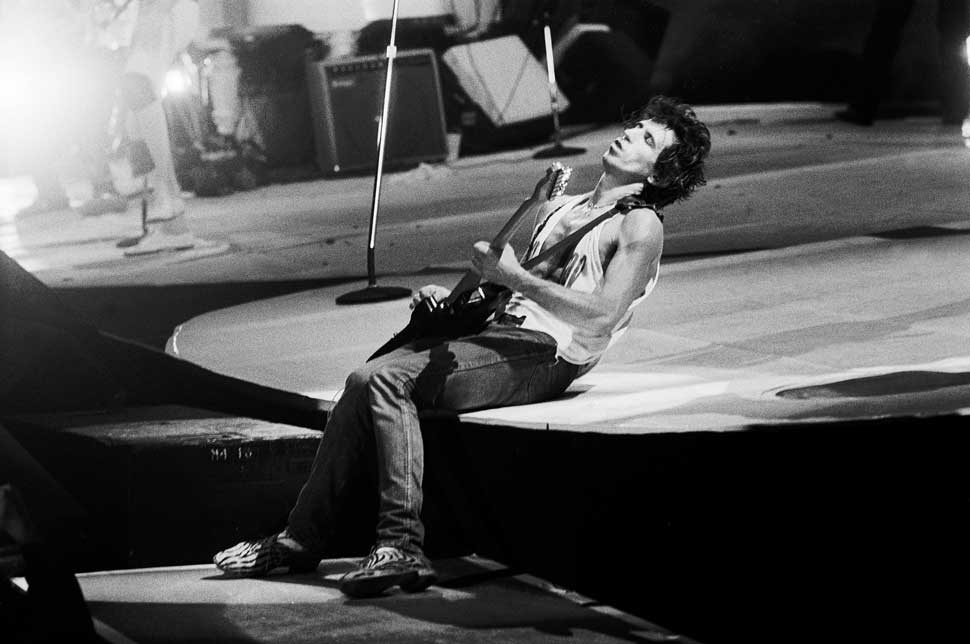
For other punks, Richards was a hero, though they were reluctant to admit it. Sid Vicious once spat: “I wouldn’t piss on Keith Richards if he was on fire,” while The Clash lyrically declared: “No Elvis, Beatles or The Rolling Stones in 1977”.
Yet the Stones secretly escaped the great purges of punk. Glen Matlock later admitted to sorties to Keith’s Richmond house in the early days. Nick Kent, who played with the pre-Lydon Pistols, said they “fucking idolised him”. As for The Clash, Mick Jones was a Richards nut. “I was a Keef man, totally,” he admitted in 2007. “I learnt everything he did. I used to go and stand outside his house.”
On the American front, Iggy Pop reveres him as “my all-time idol”. In 2002, he told Jon Bennett: “He’s my hero because he’s stayed consistent in the way that the real musicians, back when music wasn’t so money-infected, did. You just don’t get many people who stay on that point.”
Patti Smith was obsessed for a while too. “There wasn’t anybody hotter-looking than me in New York in 1971,” she told biographer Victor Bockris. “You ask anybody. It was the Keith Richards look.”
A host of other admirers followed: Steve Earle (who often included heroin anthem Dead Flowers in his live shows, and lifted his self-destructive tendencies from Keith), Johnny Thunders (whose greasy guitar licks and wanton hedonism were a direct tribute), Chrissie Hynde (“Keith’s the total outlaw”), Dinosaur Jr’s J Mascis (for whom Richards’ tune Happy is “a great moment on the greatest record ever”), Kurt Cobain and Courtney Love, Dave Grohl, Frank Black and many more. The Black Crowes’ Chris Robinson explained the appeal of Keith and the Stones in 1991: “They’re nothing but a big ‘fuck you’ to everyone: ‘We’ll do it our way’.”
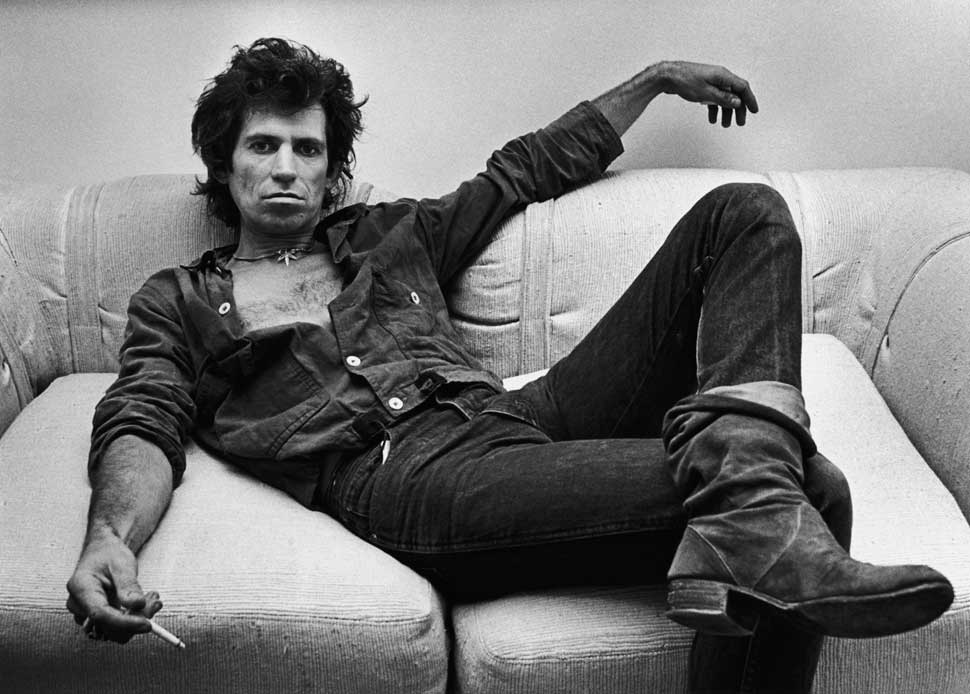
For all the mystique though, it’s ultimately the music that counts. Richards is arguably the most distinctive guitar player in rock, be it the blistering white voodoo of Gimme Shelter, the vicious groove of Brown Sugar or the monumental riff of (I Can’t Get No) Satisfaction. As Johnny Marr has observed: “Keith didn’t just invent a sound, but a whole new guitar style – possibly the coolest style since Robert Johnson or [Howlin’ Wolf guitarist] Hubert Sumlin.”
Rick Richards, meanwhile, finds something eternally primal in his namesake’s playing: “What Hendrix did and what Keith does, for example, can’t be pigeon-holed. But for my money, I’d listen to Keith knock out that fucking great rhythm any day of the week.”
It’s an observation echoed by Richard Lloyd: “As a guitarist, I’d put him in the same league as Jimi Hendrix, who I also knew. As a bastion of the guitar, I wouldn’t put any of The Beatles in the same category as Keith. Sure, you can play the simple riff, but can you do it all night long? I saw the Stones not so long ago and they did Tumbling Dice. In the coda, Keith did the ‘rolling tumbling’ line for 20 minutes! I got chills. The guy is a king.”
Richards himself has always been rather wary of pretenders to his crown. “I say good luck to people who want to emulate me, but they better realise what they’re getting into,” he once warned, by way of some sage advice. “They better know that there’s more to this than attitude. It’s about the music, it’s about the blues. That’s what sustains me.”
This feature originally appeared in Classic Rock 126, published in December 2008.
Freelance writer for Classic Rock since 2008, and sister title Prog since its inception in 2009. Regular contributor to Uncut magazine for over 20 years. Other clients include Word magazine, Record Collector, The Guardian, Sunday Times, The Telegraph and When Saturday Comes. Alongside Marc Riley, co-presenter of long-running A-Z Of David Bowie podcast. Also appears twice a week on Riley’s BBC6 radio show, rifling through old copies of the NME and Melody Maker in the Parallel Universe slot. Designed Aston Villa’s kit during a previous life as a sportswear designer. Geezer Butler told him he loved the all-black away strip.
You must confirm your public display name before commenting
Please logout and then login again, you will then be prompted to enter your display name.

